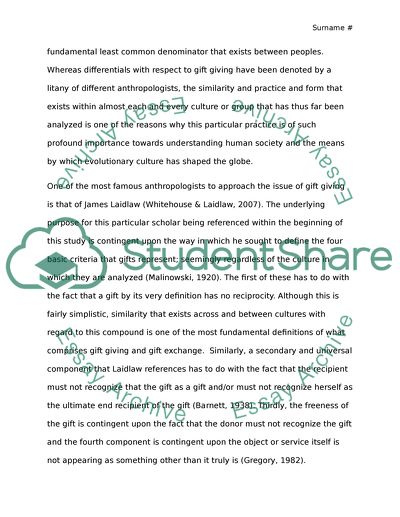Cite this document
(“Why has gift exchange been an important topic for anthropology Essay - 2”, n.d.)
Retrieved from https://studentshare.org/anthropology/1655771-why-has-gift-exchange-been-an-important-topic-for-anthropology
Retrieved from https://studentshare.org/anthropology/1655771-why-has-gift-exchange-been-an-important-topic-for-anthropology
(Why Has Gift Exchange Been an Important Topic for Anthropology Essay - 2)
https://studentshare.org/anthropology/1655771-why-has-gift-exchange-been-an-important-topic-for-anthropology.
https://studentshare.org/anthropology/1655771-why-has-gift-exchange-been-an-important-topic-for-anthropology.
“Why Has Gift Exchange Been an Important Topic for Anthropology Essay - 2”, n.d. https://studentshare.org/anthropology/1655771-why-has-gift-exchange-been-an-important-topic-for-anthropology.


